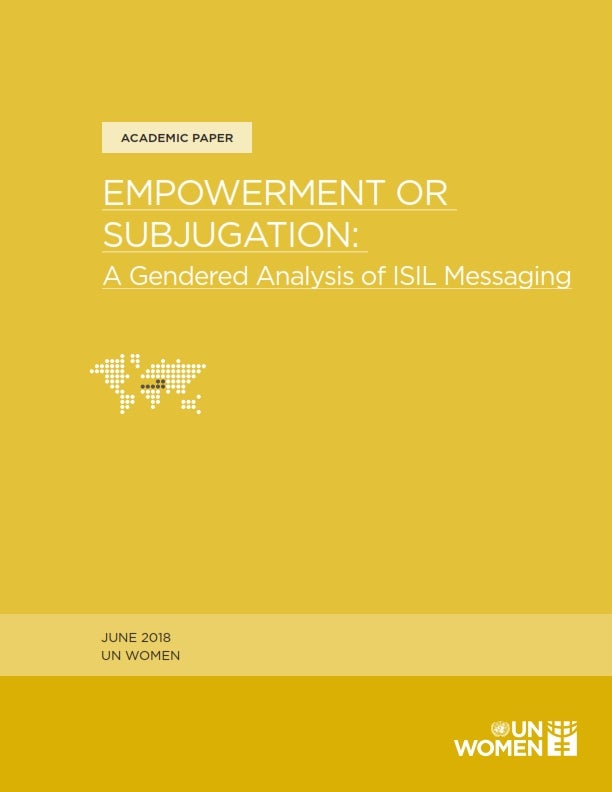
Empowerment or Subjugation: An Analysis of ISIL's Gender Messaging

The terrorist group, the Islamic State in Iraq and the Levant (ISIL) needed men and women to build its state and actively reached out to both to join its “utopian” enterprise. In response, women, like men, travelled from across the world to join its caliphate. But how did a group so explicitly committed to the segregation of the sexes, to men’s control over women’s bodies and to the enslavement of women appeal to women and offer them an illusion of empowerment?
UN Women's report examining this issue is based on a systematic reading of ISIL’s magazines in Arabic, English and French. This report, Empowerment or Subjugation: An Analysis of ISIL's Gender Messaging, shows how the group strategically crafted its messages to women in different ways to persuade them to travel to its territory and to adhere to its moral code and governance model, which includes women’s strict obedience to their husbands. It also highlights how language to men - both in recruitment countries and fighting for ISIL, spoke to gendered issues of power and dominance.
The report reveals that the group used women and purportedly women’s voices and experiences as tools to promote the group’s rigid social order and the subjugation of women. The extremist group also used a radical interpretation of religion in contradictory and self-serving ways. For example, to justify greater freedoms for women to travel on their own to ISIL-controlled areas, but also to justify severe limitations on the basic movement of women living in ISIL territories.
While it has lost its “caliphate” where women where subjugated and in some cases, enslaved, the threat posed by ISIL and other extremist groups to international security remains potent. In 2015, the UN Security Council adopted Resolution 2242, explicitly recognizing the interlinkage between women, peace and security and the prevention of violent extremism. The findings of the UN Women report aim to inform and influence the debates around alternative messaging strategies, as well as initiatives for a more efficient and effective response to these challenges –while also calling for accountability for the victims of ISIL crimes.